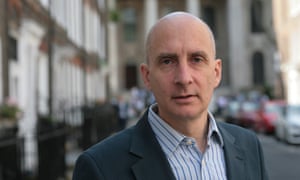 What has got into Andrew Adonis? The former Tony Blair guru, now a Labour peer, has spent much of his summer having a go at higher education, and particularly vice-chancellors, attacking them on Twitter, and anywhere else he can, for their “greed”, for running a “fee cartel” and for leaving students with a “Frankenstein’s monster debt”. He’s asked the Competition and Markets Authority (CMA) to investigate why fees are so high and the Higher Education Funding Council for England (Hefce) to look into governance at the University of Bath, where the vice-chancellor earns more than £450,000 a year. In any spare moment he tweets the number of university staff at individual universities on annual salaries of more than £100,000, or the six-figure earnings of managers of the Universities Superannuation Scheme, recently revealed to have run up a deficit of £17.5bn.
What has got into Andrew Adonis? The former Tony Blair guru, now a Labour peer, has spent much of his summer having a go at higher education, and particularly vice-chancellors, attacking them on Twitter, and anywhere else he can, for their “greed”, for running a “fee cartel” and for leaving students with a “Frankenstein’s monster debt”. He’s asked the Competition and Markets Authority (CMA) to investigate why fees are so high and the Higher Education Funding Council for England (Hefce) to look into governance at the University of Bath, where the vice-chancellor earns more than £450,000 a year. In any spare moment he tweets the number of university staff at individual universities on annual salaries of more than £100,000, or the six-figure earnings of managers of the Universities Superannuation Scheme, recently revealed to have run up a deficit of £17.5bn.
Asked why the sudden campaign, Lord Adonis, tripping over one of the many papers on his office floor, spills reasons almost faster than even he can articulate.
“I’ve gone in pretty strong because it’s got to be clear that the current system isn’t sustainable,” he says. “And one of two things will happen – either the vice-chancellors will lead reform themselves, or it will be done to them.” Failure to act, he suggests, will bring “massive austerity, and they will have nobody to blame but themselves”.
On one day in July he did a string of 27 tweets listing high university salaries. He joked: “There’s a universities lobbying group called MILLION PLUS which all the vice-chancellors are joining because it’s their new salary target!”
It was when fees went up to £9,250 linked to RPI with 6.1% interest that he felt impelled to speak up. “I just thought this has got totally out of hand.” He argues there is “a massive, massive category difference” between fees of £3,000 a year repaid with no real rate of interest – the scheme he helped devise in 2004 – and the current system. Particularly worrying, he says, is that the high interest rate means those who earn enough to pay all their fees back, but not enough to pay them off early – such as teachers and doctors – will end up paying far more than those on huge salaries, such as bankers, able to dispense with the debt in a few years.
Internationally, the trend is for fees to go because they have become electorally impossible, he says. Fees have been abolished in Germany – “I’ve always taken the view that if Germany is doing something you should take really serious notice” – and in New York state.
He has philosophical reasons too. The idea of the fee system he helped introduce was that it was supposed to recognise the fact that both the state and the individual benefited from higher education so both should contribute. “What happened in 2010, which I think was one of the aspects of excessive austerity, was that we moved overnight to a system where the state withdrew and the individual was expected to make the entire contribution. That became, in my view, fundamentally unfair.”
But what has really set him going over the past few weeks is looking into what universities have been doing with the fee money. “I think it is a genuine scandal what has happened not just to vice-chancellors’ pay but to top pay, and that would not have happened but for the fees bonanza,” he says.
It could also be significant that Adonis’s two children are about to start university – one next term, the other is in the process of applying. He doesn’t want to go into this beyond the fact that he’s been attending a lot of open days, which, he says, “have helped me see things – positive and negative”.
Responses to his campaign have ranged from the supportive to the furious. But it already seems to be having some effect. While the CMA declined to intervene in setting fees, the universities minister, Jo Johnson, has told vice-chancellors they must justifyhigh salaries by exceptional performance.
And Hefce, the universities’ funding council, has announced it will be investigating governance at the University of Bath in light of Adonis’s concerns. Adonis, a former journalist for the Financial Times and then the Observer, is thrilled at this, which he sees as a big story: “It’s the first time I’m aware of that Hefce has investigated the governance of a university in respect of salaries.” Actually, he seems thrilled with his campaign altogether – “the Sun did an entire two pages on it …” – and vows to continue speaking (and tweeting) truth to power.
It’s not that he’s short of other things to do. As well as his role in the Lords, he spends three days a week as chair of the National Infrastructure Commission, for which he earns – “complete transparency” – £85,000, the pro rata rate (£142,000) of a permanent secretary, the same as his preferred salary for a vice-chancellor.
Nor does he believe higher education the most pressing problem facing the UK. This clearly is Brexit: he is due to deliver a book on how to stop Brexit next month. He was asked to do one on the future of higher education but is not sure that he will have the time. But he does seem to be relishing his chance to upset the education establishment.
Adonis, who was a councillor for the SDP and then the Liberal Democrats before joining Labour, was promoted to the peerage by Blair in 2005 and became an education minister after heading the No 10 policy unit. He describes Blair as “an extraordinarily natural politician” – they are still in regular contact. By contrast, he has not spoken to Jeremy Corbyn for 10 years. But he supports the Labourleader in speaking up for students, admires the way he has cut through with the public and can certainly see no prospect of another political party being launched in the UK. “The SDP was a failure. And the lesson I take from the failure was that you need to work from within the existing party system if you want to change the country, not engage in political fantasies of new parties.”
Infrastructure and education are his two big interests, he says, because both can transform society, and on education, he has strong personal reasons for this claim. Abandoned aged three by his mother, he spent much of his early life in a children’s home because his father, a waiter then postman, struggled to work and bring up Adonis and his sister. Thanks to Auntie Gladys, the inspirational head of the home in Camden, north London, he secured a state scholarship to a boarding school, Kingham Hill in Oxfordshire.
He was only the second pupil from there since the war to make it to Oxbridge. “It was a massive culture shock,” he says. “But I loved it. And it’s been the making of me.” He was in Oxford for “the 10 best years of my life”, first as a student at Keble College, then as a postgraduate at Nuffield, and taught for three years at Jesus. If there is one job he covets it is that of chancellor of Oxford, following in the footsteps of his hero, Roy Jenkins. For him, Oxford remains the best university in the world but “I think we have lots of very good universities. I think universities are one of the great civilising forces of life.”
He is clear about what he would like to see happen from next year. He wants top institutions to take the lead and unilaterally cut fee levels. He also wants any vice-chancellor paid more than £200,000 to cut their own pay – those paid over £300,000 should halve it. This, he claims, would not only help cut fees but give managers a better relationship with their university staff, whose basic pay rise last year was 1.1%.
He wants his own party to lead the debate and Johnson to promote cross-party agreement on a lower fees regime and reintroducing the state teaching grant. The 6.1% interest rate on student loans, he predicts, will go, and this will inevitably mean restoring the cap on student numbers, lifted two years ago by the then chancellor, George Osborne. Fears that this could reduce the number of disadvantaged students making it to university, he says, could be eased if higher level apprenticeships take off. He also believes universities should open all year to offer intensive two-year degrees.
Isn’t this an idea long supported by the Conservative government? Yes, he agrees, but, just as with government calls for restraint on vice-chancellors’ pay, nothing’s happened.
“When I was a minister I only went on about things I was going to make happen,” he says. “I very rarely talked about things I wasn’t.”
- This article was amended on 8 August to correct the year when the decision was taken to raise tuition fees to up to £9,000 and to clarify that academics were given a basic pay rise of 1.1% last year, not a pay cap at that rate.
Source:-theguardian


